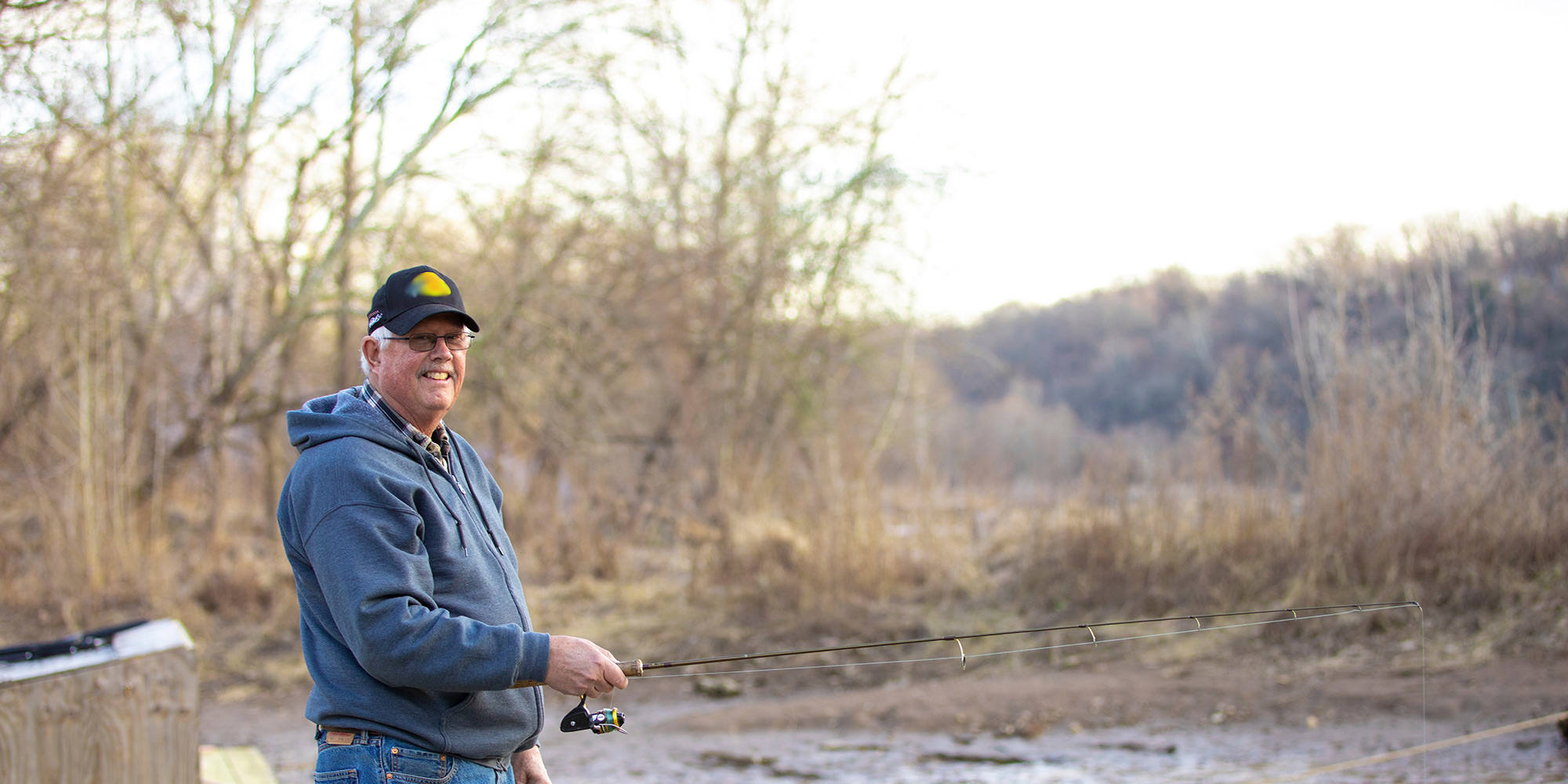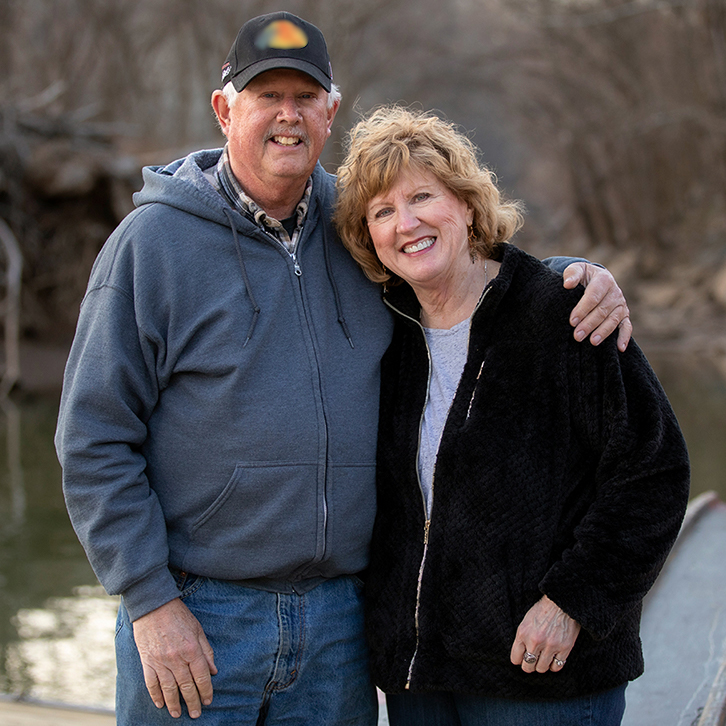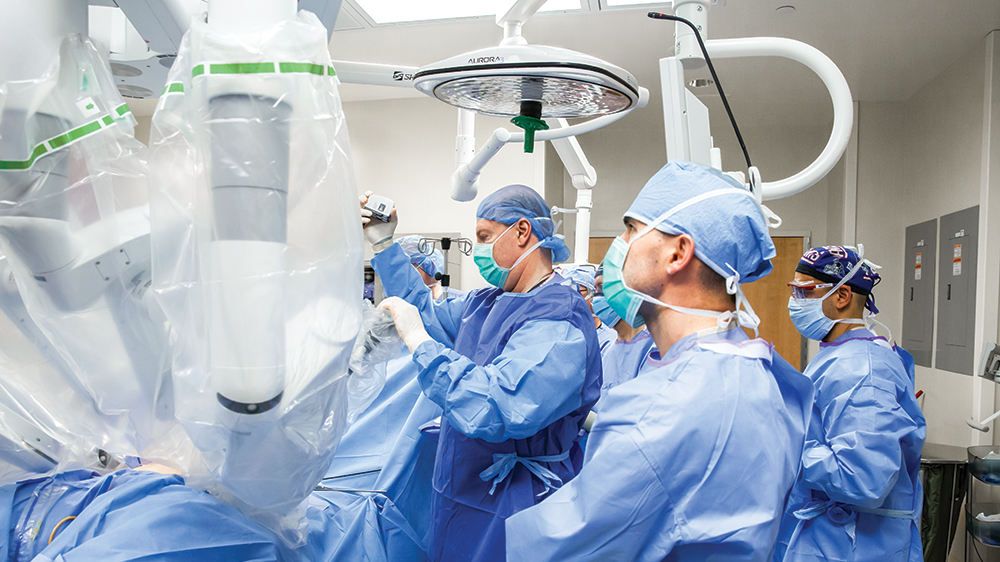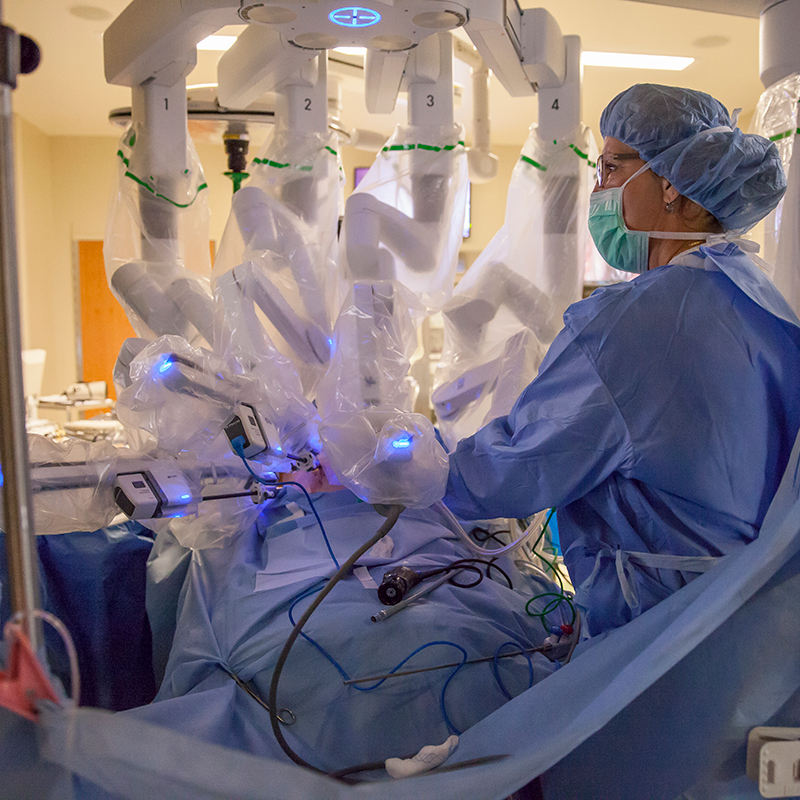Michael's Kidney Cancer Story

Enjoying His Favorite Pastime Again, Thanks to Robotic Surgery
Cancer surgery using the most advanced robotic equipment requires only small incisions, rather than the much larger incisions of conventional surgery. For patients, that means significantly less pain, less bleeding, less scarring and fewer complications — as well as a fast, full return to normal activity.
The robot’s advanced Firefly® imaging technology also enables surgeons during some procedures to see if cancer has spread to the lymphatic system. This helps preserve healthy tissue and decreases the likelihood of life-changing complications such as lymphedema. For cancer patients requiring additional treatment after surgery, such as chemotherapy or radiation, less trauma makes taking the next steps faster and less difficult. For those patients, the collaborative approach of Holy Cross Health’s multidisciplinary team of cancer specialists ensures each individual receives the optimal care appropriate to their unique circumstances.
For Michael, early detection was a game-changer. Abnormal blood test results led to an MRI, which revealed a cancer mass on his left kidney. “We kind of stumbled across it,” he says. “But that wouldn’t have happened without my regular visit to the doctor.”

Advanced robotic-assisted surgery allowed Michael to beat kidney cancer and quickly get back to work and the activities he loves. “I’m so grateful to be alive and be out here again at one of my favorite fishing spots,” he said. -Michael, Kidney Cancer Survivor
When rolled into the operating room for a robotic-assisted partial nephrectomy on his left kidney, Michael said, “I felt like I was in Star Wars, with a room full of robotic arms and advanced technology.” But for Michael’s highly trained Holy Cross Germantown Hospital team, this futuristic scene was all in a day’s work: his urologist, Justin Fang, MD, precisely positioned slender cameras and instruments in Michael’s abdomen through the tiny incisions. Dr. Fang said that, thanks to images sent from the cameras to a screen on a separate console, “I have a 3D view of the inside of the belly and can control the instruments remotely.” He meticulously removed the cancerous tissue on Michael’s kidney, allowing healthy tissue to safely remain.
Afterwards, instead of enduring a long, painful recovery from a full laparotomy (abdominal cavity surgery), Michael was released from his private room at the hospital just 36 hours after he had arrived and was quickly up and about.
A System-Wide Commitment to Robotic Surgery
Holy Cross’ commitment to patient care goes well beyond acquiring the latest technology. According to Bryan Steinberg, MD, chair of the Robotic Surgery Committee and medical director of Thoracic Surgery, “Holy Cross Health has done a herculean task of building a comprehensive robotic-assisted surgery program based on the most advanced equipment. We build on each other’s experience, share techniques, and learn from each other’s procedures.”
The broad range and high volume of robotic procedures performed by dozens of specialists in thoracic, colorectal, general, hernia, gynecologic, urogynecologic and urologic surgery mean the highest level of care and collaborative solutions for the most complex surgeries.
For each of these patients, as for Michael Brown, Holy Cross Health’s leadership in robotic surgery is personal. He was soon able to get back to working as a BWI baggage handler — and dropping a fishing line into D.C.’s C&O Canal. Just like always.
For more information about Holy Cross Health's cancer services, call 855-HCH-HOPE (424-4673).
Find the Care You Need, Close to Home

Minimally Invasive Expertise
- Learn about minimally invasive surgery
- Learn about surgery types and benefits
- Find a robotics-trained surgeon


